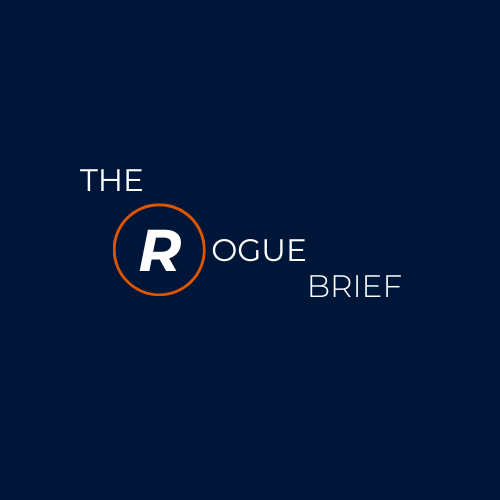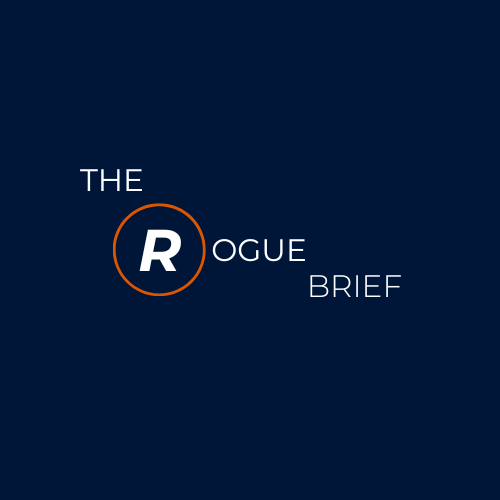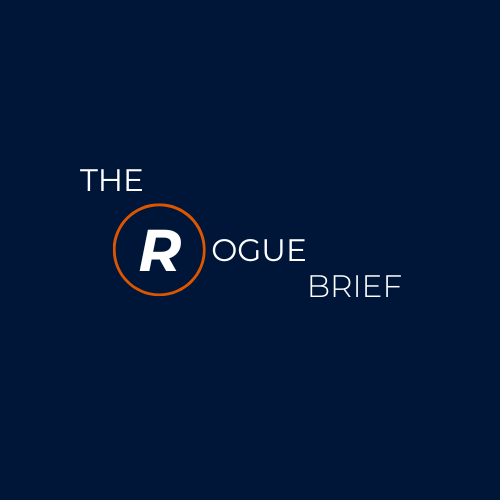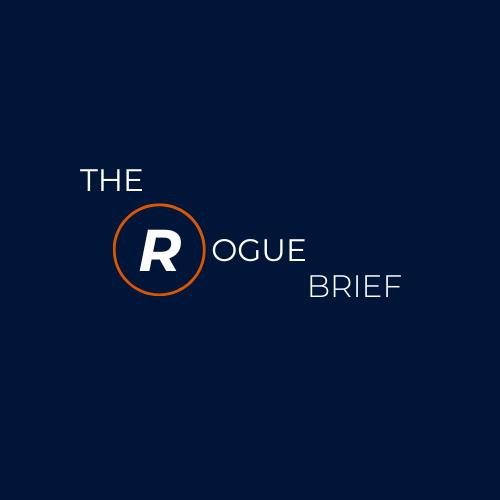The Mehdi Hasan Jubilee Episode: When Political Spectacle Meets Extremist Reality
Mehdi Hasan went into that Jubilee debate expecting far-right conservatives. What he got were people who "proudly identified as fascist" and defended Nazi ideology to audience applause. Here's what that reveals about where political discourse has actually moved.

Here's What Actually Happened
Mehdi Hasan, the progressive journalist and Zeteo editor-in-chief, agreed to participate in Jubilee's "Surrounded" format—one person debating 20 opponents in a circle. The twist? Hasan himself was genuinely shocked by how extreme his opponents turned out to be, posting afterward that he "had no idea they'd be so extreme and racist."
The episode featured participants who "proudly identified as fascist" and made "openly racist and reactionary remarks," including claims that "white people in the US are the real Native Americans," that "Nazis may not have been that bad," and that "white genocide is real." One participant even quoted Nazi theoretician Carl Schmitt during the debate.
This wasn't your typical cable news panel discussion. This was something far more revealing about where American political discourse has moved—and what platforms are willing to broadcast for content.
The Missing Context: What Jubilee's Format Actually Does
Here's what most coverage of this episode missed: Jubilee's "Surrounded" series is explicitly designed as spectacle, with critics describing it as "extremely competitive, theatrical, and unbalanced"—essentially turning political discussions into what Trump-era politics became.
The format itself tells us everything we need to know about intent. Participants can "vote out" debaters by raising red flags when they feel their side is "losing," which prevents significant points from being made and makes it nearly impossible to change minds. The power imbalance is intentional—professional debaters and political commentators face "ordinary people" who are typically less prepared for formal debate.
Jubilee's CEO Jason Y. Lee describes their goal as creating "the Disney of empathy" while simultaneously producing content that "provoke understanding and create human connection." But the actual structure suggests something different: maximizing viral moments and engagement rather than genuine dialogue.
Pattern Recognition: The Spectacle Economy of Political Content
Ever notice how this episode follows the exact same playbook as every other viral political debate format? The pattern is remarkably consistent:
The Setup: One skilled debater versus multiple opponents, creating a David vs. Goliath dynamic that guarantees emotional investment from viewers on both sides.
The Participants: Jubilee has featured "political commentators such as Ben Shapiro, Michael Knowles, Charlie Kirk, and Pete Buttigieg"—established figures with media training facing less experienced opponents.
The Outcome: Audiences "simply believe that the person they agreed with won each debate," regardless of what actually happened during the discussion.
What makes Hasan's episode different is that the extremism was so overt it surprised even the experienced participant. Hasan noted this was "like nothing I've done before" and that he was "genuinely not aware of how extreme many of them would be."
This reveals something important: the content pipeline has moved further right than even progressive media figures expected.
What This Actually Means
For Political Discourse
The "Surrounded" series has generated over 50 million views and "sparked diverse political conversations online," but the conversation quality matters more than the quantity. Multiple analysis pieces note that these formats prioritize "drama and clout" over productive dialogue, with participants more focused on "getting clicks and commentary" than genuine understanding.
The Hasan episode specifically highlights a troubling trend: platforms are now regularly giving airtime to openly fascist rhetoric in the name of "balance" and engagement. When someone proudly identifies as fascist on a mainstream platform and receives applause from the audience, we've moved far beyond normal political disagreement.
For Content Strategy
Jubilee's CEO believes "the future of political conversation is on YouTube, not traditional media" and wants to host a presidential debate by 2028. The success of this format signals where political media is headed: away from journalistic standards toward entertainment-first spectacle.
This matters because YouTube's massive reach (81% of U.S. adults use the platform) means these formats are becoming the primary way younger generations encounter political discourse. When the most viral political content rewards confrontation over conversation, we're training audiences to expect performance rather than policy discussion.
For Understanding Extremism
The most significant aspect of this episode isn't Hasan's debate skills—it's what the participant selection revealed. Critics noted that the episode showcased "extremist rhetoric from some participants, including open references to white nationalist talking points and even positive mentions of Nazism."
Here's the pattern we should be watching: these aren't fringe views accidentally making it onto mainstream platforms. They're being specifically recruited and platformed because they generate engagement. The extremism is a feature, not a bug.
What to Watch For: The Normalization Pipeline
The Hasan episode represents a concerning milestone in how extreme political views get mainstreamed. The process typically follows this pattern:
- Platform Integration: Extreme views get featured on "neutral" debate platforms under the guise of "hearing all sides"
- Audience Conditioning: Regular exposure makes previously shocking rhetoric seem more normal
- False Balance: Presenting fascist ideology alongside progressive policy as equivalent "political opinions"
- Viral Amplification: Most extreme moments get clipped and spread across social media, divorced from context
What makes this particularly dangerous is the audience response. According to reports, extremist statements like defending Nazi ideology received "enthusiastic applause from the audience," suggesting this isn't just about individual participants but about cultivated communities.
The Bigger Picture: Democracy vs. Engagement
Jubilee's CEO claims the company is "politically neutral" and maintains "a diverse team of producers and editors," but neutrality becomes meaningless when one side includes people who "proudly identify as fascist." You can't maintain democratic discourse by treating anti-democratic ideology as just another political position.
The fundamental question isn't whether Mehdi Hasan won or lost the debate—it's whether democracy can survive when political discourse is optimized for engagement rather than truth.
This episode also exposes the limits of the "good faith debate" approach that many progressives still believe in. When opponents openly embrace fascist ideology, factual rebuttals become beside the point. The goal isn't persuasion; it's recruitment and normalization.
What This Actually Tells Us
About Media Evolution: Traditional political media's collapse has created space for YouTube channels to become primary political information sources, with entertainment value prioritized over journalistic standards.
About Audience Appetites: The success of these formats reveals that significant portions of American audiences prefer political combat to political problem-solving.
About Platform Responsibility: Companies like Jubilee can claim neutrality while systematically platforming extremist ideology because engagement metrics reward controversy over constructive dialogue.
About Progressive Strategy: The episode highlights a strategic challenge for progressives: how do you counter extremist rhetoric without amplifying it? Hasan's participation, while impressive from a debate perspective, ultimately gave a massive platform to fascist talking points.
The Community Question
Here's what I'm curious about: Does exposing extremist rhetoric in these formats actually help counter it, or does it normalize it further?
Hasan himself seemed to recognize the dilemma, posting that while the content is "awful," he thinks "it's extremely important we see these extremists—especially younger ones—out in the open" as "a major wakeup call."
But research on radicalization suggests that exposure alone isn't sufficient—and can sometimes backfire if the extreme views are presented as legitimate political positions deserving equal time and respect.
What patterns are you seeing in your own social media feeds? Are these debate formats helping people understand political differences, or are they just training us to see politics as a contact sport?
Join the discussion: What would productive political dialogue actually look like in the YouTube age? And how do we balance exposing dangerous ideology with not amplifying it?



Comments ()